Winds of change
The changing scenario in the global automotive/mobility world can be said to be the most significant since the birth of the internal combustion engine. And, the engine as we know it today, may not live for too long.
If there were any doubters of the megatrends of electrification, connected vehicles, autonomous driving and safety affecting the Indian automotive component industry, with the developments in recent times there shouldn't be any more now. Key players are already taking the necessary steps to ride the winds of change.
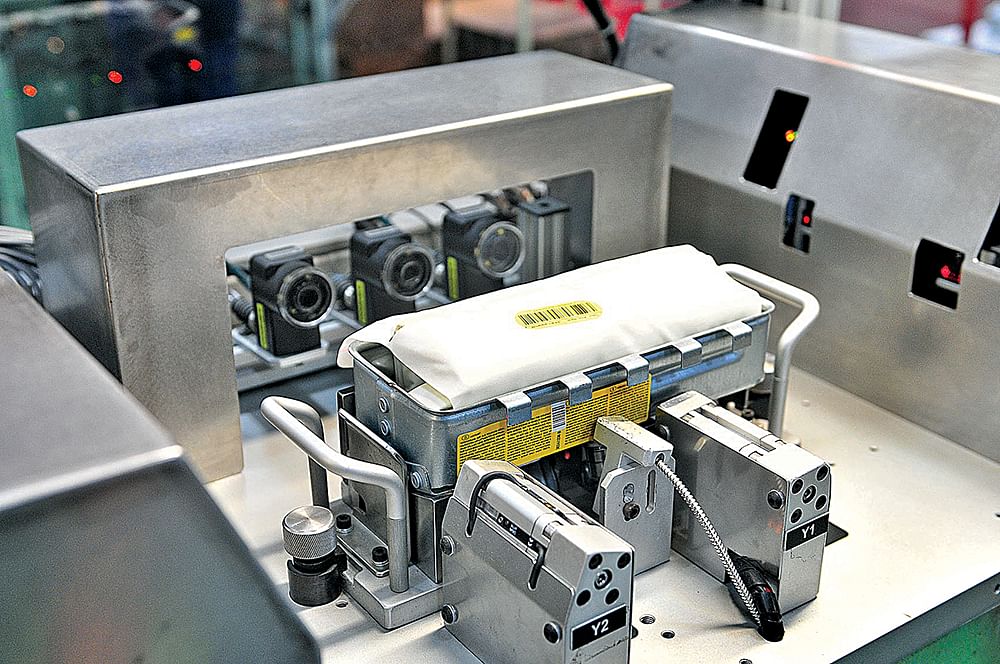
Rane TRW airbag manufacturing unit
The changing scenario in the global automotive/mobility world can be said to be the most significant since the birth of the internal combustion engine. And, the engine as we know it today, may not live for too long. Nearly 50 percent of the Indian component industry's revenue is estimated to be earned from internal combustion engine technologies. It's anybody's guess what the impact could be if mass scale electric mobility, for example, becomes a reality soon.
"Industry people have started upgrading themselves, they have started visiting international motor shows. They have started looking at what is happening in new technologies like hybrid, electric and other technologies, especially pertaining to ICE-related engines. These people are going to be affected, but this effect is not going to be abrupt, it is not going to be disruptive but will happen step-by-step," says N K Minda, president, Auto Components Manufacturers Association (ACMA).
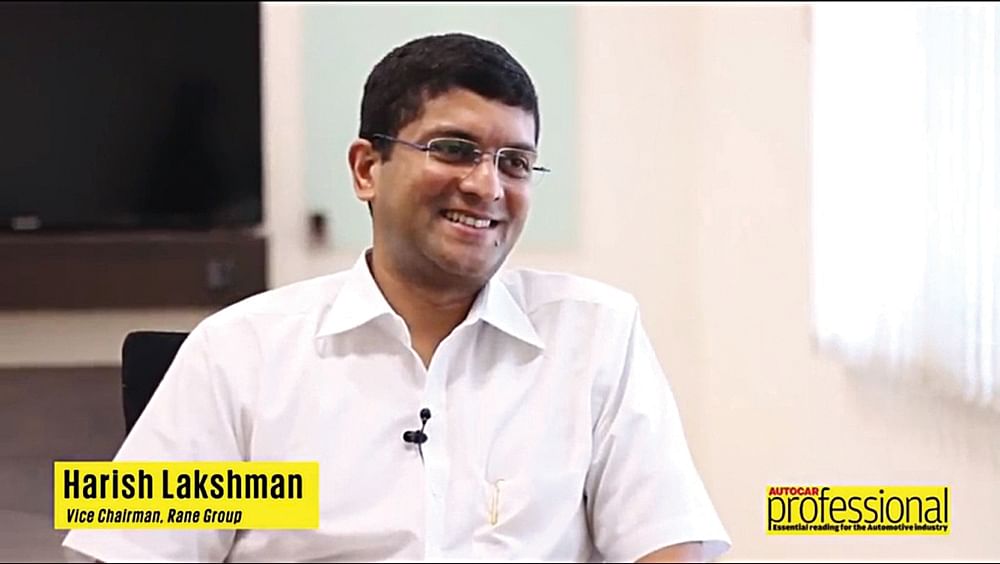
Rane Group's Harish Lakshman: "Most would not have predicted that we will be discussing electric taking over or autonomous tech."
"In addition to the India growth story, we are having major disruptions that we can see in the horizon, which I think most of us would not have predicted even two years ago, that we will be sitting and discussing electric taking over and even things like autonomous," says Harish Lakshman, vice-chairman, Rane Group.
Change is here and Tier 1 suppliers are preparing for it. As the new automotive world takes shape, the road ahead is not absolutely clear. But what's clear is that the megatrends are here to stay, and India too will be a playground for them. "I personally feel that you can’t wish it away. It is definitely there, whether it is in terms of regulation which is tightening, whether on emission, safety and other things, or more and more comfort which is required whether it is in terms of now connected vehicles or autonomous vehicles. Well, EVs and hybrids are a reality. They are happening all around the world. The only thing which is still not clear is at what pace this technology will happen," Deepak Chopra, CEO, Anand Group tells Autocar Professional. The Rs 9,000 crore Anand Group has set up an automotive growth council to identify and draw strategies for, new opportunities. The council is headed by Sunil Kaul, Group President – Technology, Innovation & Automation, and a member of the Executive Committee at Anand Group. Safety is also a key megatrend. As new regulations kick in, the Anand Group will invest Rs 500 crore over three years only in its brakes business with Mando.
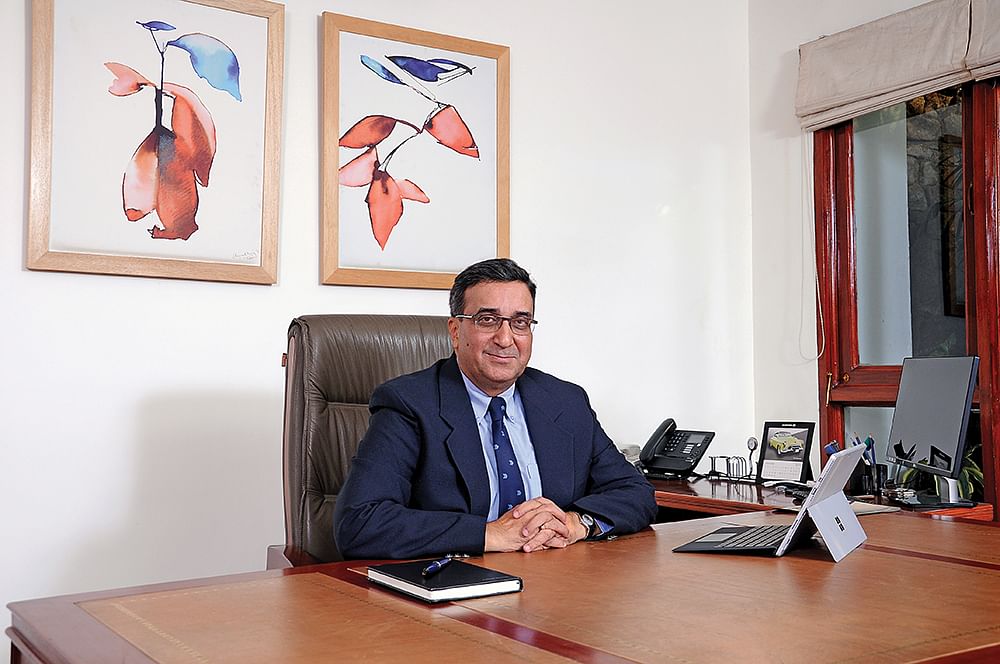
Anand Group's Deepak Chopra: "You cannot wish megatrends away. What's not clear is at what pace this technology will happen."
Over two years ago, Rane Group, another leading component manufacturing group, started doing some internal assessment of the impact that mass-scale electric mobility can have on its businesses. For good or for bad, it found that only one of its entities Rane Engine Valve, which contributes to about 11 percent of the group's sales revenue, would be affected if the automotive industry rapidly shifts to electric mobility. Along with the internal assessment efforts, the group also set up a team to identify new business opportunities. The first key step towards any of the megatrends was the acquisition of a 70 percent stake in a Bangalore-based telematics firm Telematics4U Services, last year. That move will help Rane to tap opportunities in the connected technologies space and potentially open up opportunities to expand the group's connected vehicle product portfolio.
Reflecting the growing ambitions of the homegrown component is the interesting move of investing in a fund in Silicon Valley, a hotbed of innovation and disruption. The Rane Group has some global component suppliers as partners in this fund, which looks at investing in disruptive technologies in the road transport sector across the globe.

Lucas TVS' Arvind Balaji: "The goal is to constantly re-invent ourselves and have new lines of business that will sustain in the future."
Many component manufacturers have already started drawing new strategies or tweaking existing ones in order to sustain and grow in the new mobility era. Quite a few companies can see some of their product lines becoming redundant in the coming years. "Yes, of course. That's why we are starting new verticals. So, the goal is to constantly re-invent ourselves and have new lines of business that will sustain in the future," says Arvind Balaji, joint MD, Lucas TVS. The company is placing its bets on three major areas – electrification, connected vehicle and the internal combustion engine too. "The IC engine will continue to be a major part of our business. No matter which projection you look at, it will continue to be there for a while to come. So, we have got products that are BS VI-ready, ready for the way IC engine is going," says Balaji.
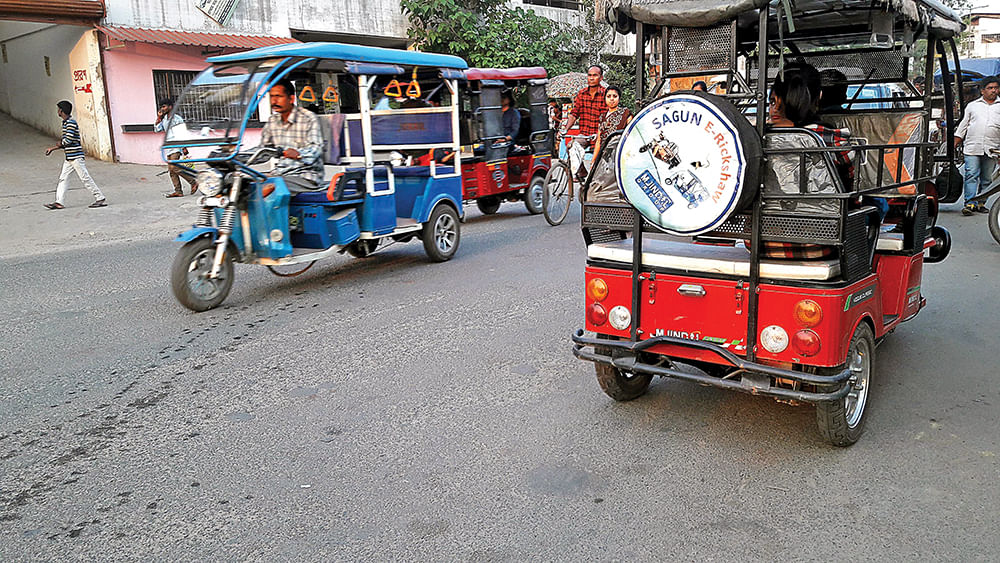
Lucas TVS foresees good opportunity in the electric three-wheeler market
Among the new developments, engineers at Lucas TVS have developed a motor for electric three-wheelers and connected vehicle technologies for two-wheelers which were showcased for the first time at the Auto Expo 2018. The technology demonstrator motorcycle featured a digital dashboard, silent start, with a remote control. These features can be incorporated in both IC engine and electric bikes.

UNO Minda Group's NK Minda: "We are on the lookout for various opportunities, whether it is electric vehicles or hybrids."
The UNO Minda Group, which also showcased technology demonstrators at the Auto Expo 2018, is among the Indian companies preparing to be able to sustain its business and growth. It is looking at venturing into new areas in the next couple of years. "We are in the lookout of various opportunities, whether it is EVs, hybrids. They should be linked to our knowledge, linked to our skill, where we can add value because we are already in electronics, and electronics is going to be approximately 40-50 percent in a car," says N K Minda, CMD, UNO Minda Group. The component major is watching the EV space "very, very closely" lining up investments and trying to find the right partners to grow in this space. In terms of adverse impact, only about 2 percent of its products will be affected by electric mobility.
The Indian component industry has reached a critical scale and level in terms of volume and capabilities. Some homegrown companies have achieved global scale in terms of quality and deliverability. But they are only a handful. The huge maturity lead of the automotive industry in the West adds to the challenge. In the fast changing automotive industry, where the new megatrends have sent almost everyone into the learning and discovering phase, perhaps there could be opportunities for Indian companies to be of global standards. Or even lead in some areas. "It gives us actually a chance to catch up. We are not starting from that far back. And I think this discontinuity is a great opportunity for us who have invested in technology to try to see whether we can make a move," says Balaji.
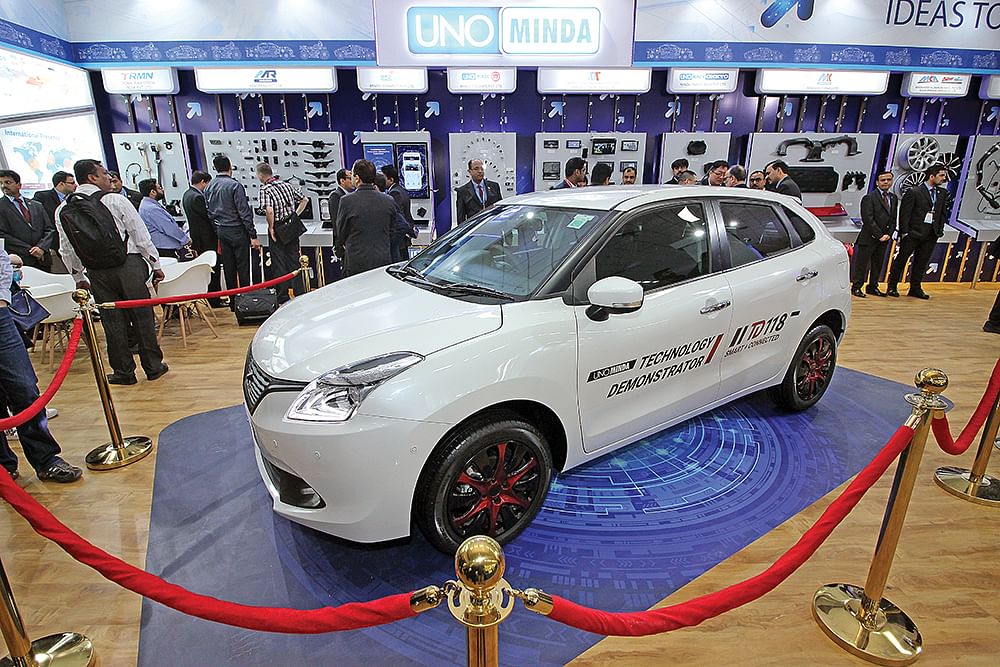
The UNO Minda Group showcased its TD118 technology demonstrator at Auto Expo earlier this year.
Lakshman agrees with the view that this is the biggest disruption period since the internal combustion engine. "We are sitting in that kind of a phase, and we don't know what is going to happen. There are going to be winners, losers, new business models that are going to come about."
Indeed, the current disruptive times are both unpredictable and exciting. Making investments for the future, without any RFQ in hand, is perhaps required now more than ever before. It is also a test of sorts for business intelligence, projections and, perhaps, also gut feel.
(This article was first featured in the June 1, 2018 issue of Autocar Professional)
RELATED ARTICLES
Onkar Kanwar: Budget 2026’s Infrastructure Push Will Anchor India’s Long-Term Auto Demand
Budget 2026 focuses on fiscal prudence, infrastructure-led growth, manufacturing strength and inclusive regional develop...
India Explores Advanced Charging Technologies to Accelerate Electric Bus and Truck Adoption
Indian researchers outline six charging methods for heavy-duty vehicles as India targets 30% electric vehicle market sha...
Riding with India: Celebrating 25 Years of Mobility, Partnership, and Progress- Tsutsumu Otani
Reflecting on 25 years of India’s two-wheeler journey, the article traces how mobility, safety, localisation and partner...






 14 Jun 2018
14 Jun 2018
 30101 Views
30101 Views





 Autocar Professional Bureau
Autocar Professional Bureau




